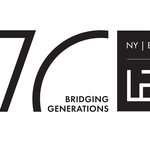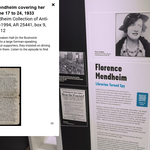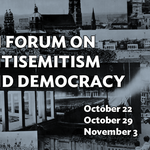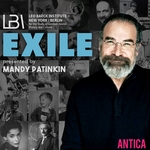Pioneers of Jewish Studies





- Autor
- David Brown
- Datum
- Mi., 25. Mär. 2015
The definitive collection of Wissenschaft scholarship was created by curator Aron Freimann at the Frankfurt City Library between 1898 and 1932. Large portions of the collection were lost in WWII, but today LBI is working with the Frankfurt University Library to recreate Freimann’s collection online. The following profiles of key Wissenschaft scholars and some of their most important works illustrates the intellectual breadth of the Wissenschaft movement, its diversity of religious and political perspectives, and its impact on Jewish practice and identity today. The texts below were largely adapted from the 1906 Jewish Encyclopedia, an important compendium of Jewish knowledge which was written in the spirit of the Wissenschaft and recently entered the public domain.
Leopold Zunz (1794 – 1886)
In December 1817, Leopold Zunz, an instructor at a Jewish school in Wolfenbüttel, wrote an essay entitled Etwas über die Rabbinische Litteratur (“On Rabinnical Literature”). This little book marks an epoch in the history of modern Jewish scholarship. It is a plea for the recognition of Judaism and its literature in university research and teaching. It exposed the ignorance which marked the books written by non-Jewish scholars on Judaism and the Jews, showing at the same time that Judaism had made valuable contributions to many sciences and therefore had a place in their history. This booklet may be said to have been the first to trace the outlines of Jewish science.
Die gottesdienstlichen Vortraege der Juden […]
- Berlin, 1832. LBI call number r BM 660 Z8
Zunz’s book on Jewish sermons would become the most important Jewish work published in the 19th century. In the preface (suppressed by state from the first edition), the German authorities were arraigned for their refusal to grant the Jews the justice due them by right and for their reluctance to accord them liberty instead of special rights and privileges. The Jews were entitled to be citizens of Germany. Jewish science too ought no longer to be excluded from governmental patronage, but should have institutions provided for its development. In the synagogues the living word was once more to resound, for the sermon had always been an institution of Judaism. Besides showing that the sermon was a thoroughly Jewish tradition, the book demonstrated that Judaism had a scholarly tradition which could justly claim equality with the studies admitted to university standing.
Abraham Geiger (1810 – 1874)
One of the leading figures of the Reform Judaism movement, Abraham Geiger believed that Judaism was not a given quantity or a national law but a process still in flux; tradition itself was the result of this continuous process of growth. He made the case for this view in his magnum opus, Urschrift und Übersetzungen der Bibel (“Original Text and Translations of the Bible”), which applied philological and historical techniques to illuminate the political and theological subtext of various translations and commentaries on the bible. He described a tension between the progressive, democratic spirit of the Pharisees and the reactionary, aristocratic Sadducees who were the custodians of the Second Temple. The Pharasaic tradition, according to Geiger, represented the “the principle of not being slaves to the letter of the Bible, but rather to witness over and over its spirit and its authentic faith-consciousness.”
Was hat Mohammed aus dem Judenthume aufgenommen? […]
- Bonn, 1833. LBI call number BP 173 J8 G4 1833
This essay, Geiger’s dissertation at the University of Marburg, demonstrated how elements of Rabbinic thought and literature were reflected in the Koran. It was programmatic for Geiger’s career-spanning intellectual project, which sought to raise the prestige of Judaism as the origin of monotheism, which was then spread through the pagan world through Islam and Christianity.
Zacharias Frankel (1801 – 1875)
Zacharias Frankel was one of the leading advocates for Conservative Judaism in Germany. Born and trained in Prague, he was the first rabbi in Central Europe with a university degree and the first to deliver his sermons in German. In 1854, he was appointed director of the newly founded Jewish Theological Seminary in Breslau, where he remained until his death. As the exponent of “positive historical Judaism” he held that Reform Judaism ignored the national component of Judaism and focused mainly on its intellectual aspects. He agreed that religious reforms were necessary and advocated the right of researching Judaism as a scholarly discipline. However, he insisted on retaining customs that were deeply ingrained in Judaism, such as the prayer for returning to Zion. His middle position was sharply attacked by representatives of Orthodox as well as Reform Judaism.
Der gerichtliche Beweis nach mosaisch-talmudischem Rechte
- Berlin, 1846 LBI call number BM 520 F73
This study of legal evidence in Talmudic law was the companion to an earlier work on the concept of oath-taking in Jewish tradition. Frankel had an explicit political motive for both; Prussian law discriminated against the Jews in so far as the testimony of a Jew against a Christian was valid only in civil cases, and in these only when they involved a sum less than fifty talers. Frankel demonstrated that the assumption on which this policy was based—that the sworn testimony of a Jew was less trustworthy than that of a Christian—had no basis in Jewish law or tradition. Frankel’s work was cited as an authority in the Prussian Diet when it abolished this form of discrimination in 1847.
Esriel Hildesheimer (1820 – 1899)
Around 1870, the orthodox minority in Berlin, distressed at the turn toward liberalization represented by changes such as the installation of an organ in the Synagogue on Oranienburger Straße and the appointment of the Reform leader Abraham Geiger, sought another rabbi to lead the newly founded secession community, Addas Yisroel. Their choice fell upon the Halberstadt-born Rabbi Esriel Hildesheimer. A vocal opponent of the Reform movement, Hildesheimer believed strongly in the principle of Torah im derekh erez (Torah and worldly knowledge): that halakhic observance was not only compatible with the study of science and other secular subjects, but that both were necessary to recognize and become close to God.
Statut für das Rabbiner-Seminar und den Seminar-Verein zu Berlin
- Berlin, c. 1874. LBI call number r 692
[inscribed by Dr. Israel Hildesheimer on page 10]
In 1873, Israel Hildesheimer founded the Orthodox Rabbinical Seminary of Berlin, which trained Modern Orthodox Rabbis in Germany until it was closed by the Nazis in 1938. Along with the Frankfurt Rabbi Samson Raphael Hirsch, Hildesheimer was among the most prominent leaders of the Orthodox movement in Germany, although his openness toward secular learning and cooperation with liberal Jews for the sake of the entire Jewish community often brought him into conflict with the more tradition-minded Hirsch.
Moritz Steinschneider (1816 – 1907)
In 1848, a Moriavia-born Talmudist named Moritz Steinschneider was charged with the preparation of the catalogue of the Hebrew books in the Bodleian Library at Oxford, a work which was to occupy him thirteen years. Steinschneider’s Bodleian catalog, along with his catalogs of the Hebrew manuscripts of five large European libraries (Bodleian of Oxford , Leyden, Berlin, Minsk, and Hamburg) opened new horizons for Jewish studies, as he unearthed numerous treasures of Jewish literature and culture which had previously been hidden. From 1860 to 1869 he served as a representative of the Jewish Community in the Berlin courts, where he administered the Jewish Oath more judaico. Steinschnider missed no opportunity to protest against this remnant of medieval prejudice. In 1872 and 1876, he refused calls to both the Berlin Hochschule für die Wissenschaft des Judentums and the Rabbinical Seminary in Budapest, holding that the proper institutions for the cultivation of Jewish science were not the Jewish theological seminaries, but the universities.
Die hebraeischen uebersetzungen des mittelalters und die Juden als dolmetscher
- Berlin, 1893. LBI call number Z 7070 S83 H4
Steinschneider’s magnum opus about Jewish translations of the Middle Ages shows how Arabic and Hebrew writers were instrumental in the transfer of classical Greek knowledge to Europe and Western culture. A far-ranging study of writings on subjects that went beyond purely Jewish interests, this work demonstrated the decisive contribution of both Jewish and Muslim writers to Western Civilization.
Aktuelles





